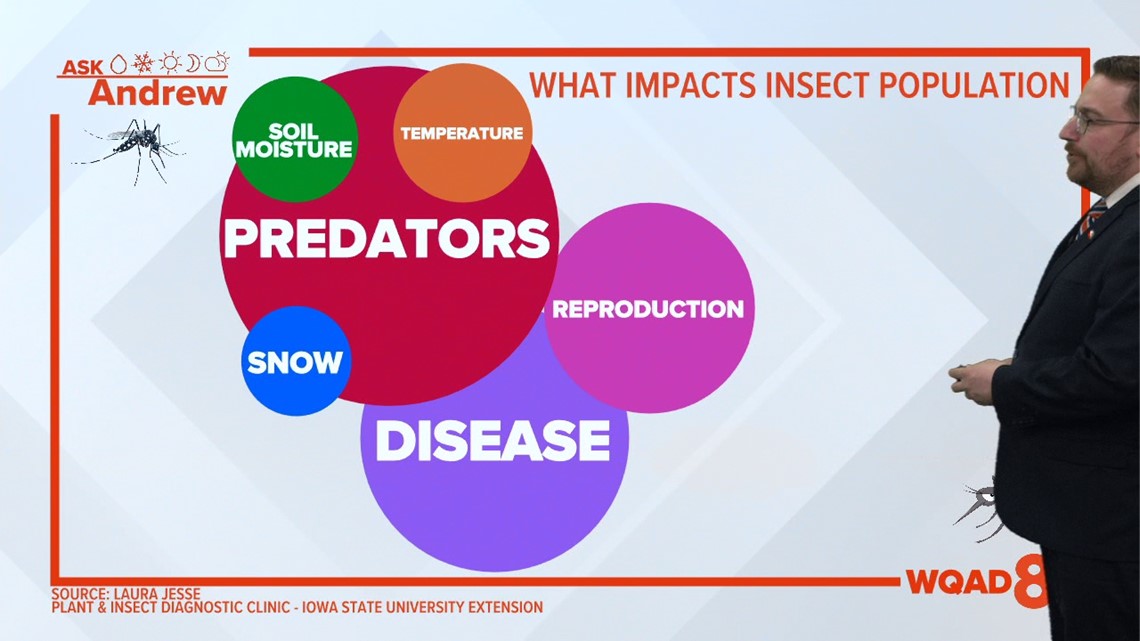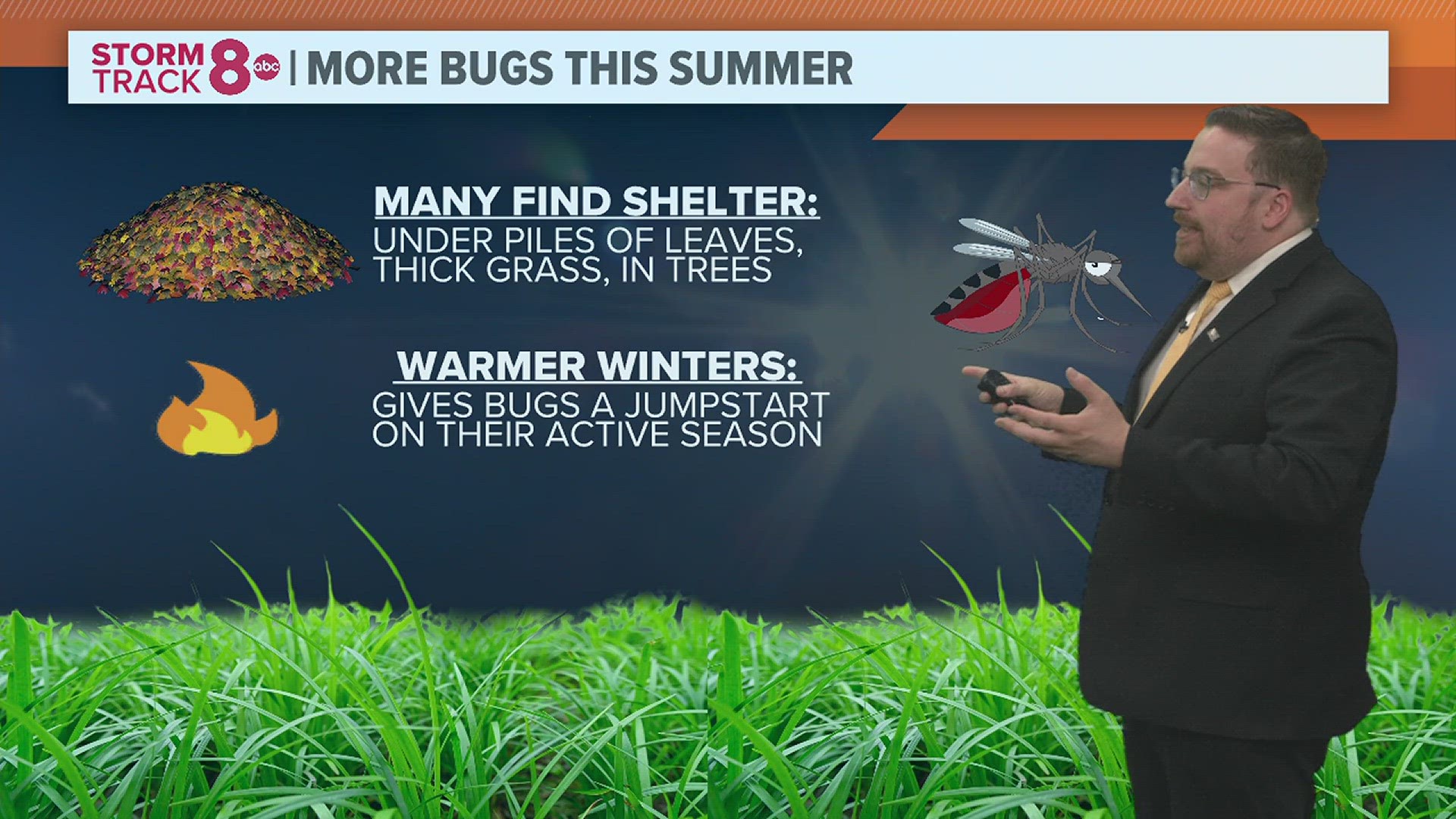MOLINE, Ill — We're soaking up the sun and some unusual warmth as well so far this February. I've already noticed a few swarms of bugs flying through the air, especially with these warmer days when temperatures get into the 60s. That brings about a great question from Gayle in Sheffield, Illinois. She asks, "Does our warm winter mean we'll be seeing more bugs this year?" Let's dig in!
I'll be the first to admit, I'm no bug expert! So, we are going to enlist the help of our friends at the Iowa State University Extension to help us out. You can also check out a VERIFY story that Meteorologist Morgan Strackbein joined me on, too! Here's what we found.
Weather is only one piece of the bug life puzzle
According to Laura Jesse, who works in the Plant and Insect Diagnostic Clinic at the Iowa State University Extension, weather is just one small factor that determines how large or small an insect population will be in the following spring and summer months.


"We say 'it depends' a lot, which may sound like we have no clue but the reason we have no clue is that it is complicated," said Jesse. "OK, it does mean we have no clue but there are good reasons we don't. For instance, how an insect is affected by the winter depends on where they are in the environment. Insects like bagworms and praying mantises that are laid over winter as eggs above ground and are highly exposed on branches may do better if the milder conditions continue."
Dr. Ryan Smith, an assistant professor in the Department of Entomology at Iowa State University agrees. "Ultimately a harsh winter might maybe kind of suppress, you know whether it may be tick or mosquito populations, uhh initially kind of during the spring but for the most part it doesn't make that much of a difference," says Smith.
Bugs have adapted to Winter
The bugs and insects native to our hometowns know the weather and have adapted. They also have mechanisms that have allowed them to fight these harsh winters. Snow even acts as an insulator to keep some of these bugs warm! If they live here and have established a population, they will continue to thrive. “I think a general rule of thumb is that if they’re able to survive and live here in any real significant numbers, they’ve found ways to get around it and have found ways to survive the winter," says Smith.


Early warmth can harm bugs
Very warm days during the winter, like the ones we've seen lately, can cause insects to become active much earlier than normal, depleting their energy reserves because food is still not yet readily available.
Soil moisture can also be another factor that impacts insect survival. If conditions are too dry, insects can dry out and die.
When focusing on the weather impacts, Jesse says spring will be a bigger factor than winter.
"When spring does arrive and insects resume activity, the effect of local weather conditions at the time of reproduction (egg laying and emergence of first instar offspring) will probably overshadow any population changes that took place during the dormant period of winter," Jesse said.
Have a question that you would like me to answer for an upcoming Ask Andrew segment? Submit it, here!

